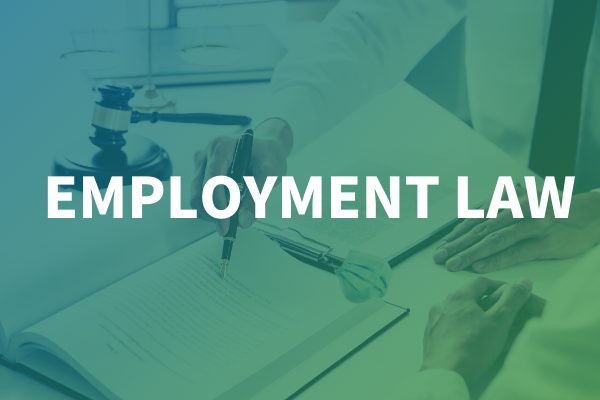Marijuana at work: How to navigate the marijuana laws

Marijuana use in the United States is more acceptable now than ever before. In many states, it’s legal to use marijuana recreationally. While others have varying levels of acceptability from providing medical marijuana access to there being no legalization of marijuana or CBD.
With the varying marijuana acceptability throughout the US, it’s essential to know the laws in your area, have policies surrounding marijuana use at work, and know the signs to look for in your employees who might come to work while under the influence – legally or illegally.
Current marijuana laws
Marijuana laws vary widely from being fully legal both recreationally and medically to not being allowed in the state.
Here are the primary marijuana legalization categories and states that fall under each category:
No public cannabis access
This means there is no acceptable use of marijuana, CBD, or low THC products in the state
-
- States adopting this stance: KS, NE, SD, ID
CBD/Low THC program
This means CBD is legal, along with low THC products. CBD is cannabidiol, a non-psychoactive ingredient found in marijuana that usually has minimal THC.
-
- States adopting this policy: NC, SC, GA, AL, MS, TN, KY, IN, TX, WI, IA, WY
Comprehensive medical cannabis program
This means adults and children can legally use marijuana for medical purposes in the state.
-
- States adopting this policy: VA, WV, PA, OH, NY, NH, RI, CT, NJ, DE, MD, FL, LA, AR, MO, MN, OK, NM, AZ, UT, MT, ND
Adult and medical use regulated program
This means adults can legally use marijuana recreationally, and adults and children can be provided with a medical marijuana card if needed.
-
- States adopting this policy: AK, WA, OR, NV, CA, CO, IL, MI, DC, VT, ME, MA
How marijuana impacts work abilities
The use of marijuana impacts people differently. It will depend on their tolerance, how much they take in, the type of marijuana, etc., similar to alcohol and other substances.
However, in general, THC, which is present in marijuana, impacts your depth perception, reaction time, coordination, and motor vehicle skills.
Depending on the type of position held, the impact can be drastic and quite dangerous, for others, not so much. For example, if you’re a surgeon or a truck driver, there should be a no-tolerance policy for marijuana use. However, if you’re an accountant or artist, you might consider it acceptable.
In knowing how marijuana can impact an employee’s work abilities, you want to ensure that all managers and leaders are clear about what marijuana impairment looks like on the job. There should also be policies in place for when a drug test needs to be issued.
Both the leadership team and employees should also be aware of the consequences of testing positive if any.
Develop a drug policy
Your drug policy should consider the laws in your state, the job requirements, and your particular preferences related to marijuana use at your company.
If marijuana use is illegal in your state, no one should exhibit the signs of being under the influence or test positive for marijuana. However, if it’s legal – medically or recreationally – you have to decide whether you’re okay with the use of marijuana.
Your policy should be very clear while incorporating ideas such as
- How to handle an employee if he or she gets a marijuana conviction
- Rules for drug testing after an on the job accident or exhibiting signs of being under the influence
- Use and possession rules
- Support options available for those who are struggling with marijuana use
- Training for those on the leadership team to be up to date on the laws, regulations, and policies
- Keep in mind that you will need to accommodate employees who use medical marijuana. It is a human rights legislation provided to employees with some form of disability. Even within these requirements, there are limits to the accommodations you are required to provide.
Best practices for marijuana at work policies
While you have the flexibility to determine marijuana-related practices within your company, overall, here are some best practices to keep in mind.
- If the impact of marijuana will reduce your employee’s ability to do their job, don’t allow use on the job or coming to work under the influence. You are not required to allow marijuana use on the job or employees to go to work under the influence, even if it’s legal in your state.
- Everyone on the leadership team should know the signs of impairment.
- Educate employees about the marijuana policy, consequences of use, and other relevant marijuana-related information they should know.
- Turn to legal counsel as you update your laws to ensure that you’re not violating your employees’ rights or missing out on opportunities to protect the company.
- If an employee has a medical marijuana card, get a letter from the physician stating that they believe the employee can complete the job duties as described.
Marijuana laws will continue to evolve. While we don’t know what the future of marijuana in the United States will hold, we know that it’s crucial to stay abreast of the changing rules, laws, decriminalization statues, and more being rolled out in states across the country. These updates should be reflected in how you communicate with your employees about marijuana use, policies, and drug testing procedures. Having clear expectations in place will help you to navigate marijuana laws in the workplace better.






